#they don't have water they don't have laws they don't have exports
Text
*SLAMS DOOR OPEN*
AND ANOTHER THING ABOUT CLIEGG LARS AND SHMI
"Oh the power dynamic, ha, yeah, bad writing George, he PURCHASES her, frees her, and then MARRIES her, oh, that's a healthy dynamic"
Okay I need you all to think about this:
If he buys a woman who has nothing (because she's a SLAVE on the CRIME PLANET)
And then says "You're free"
and follows that up with "ON THE CRIME PLANET"
What happens next?
What happens if you just turn a woman loose with nothing on the CRIME PLANET?
Yeah. Yeah.
"Well he could get her a ride off-planet" with what, the money he used to free her? To send her where? To his friends off-world? Why is he still living on the CRIME PLANET (that has nothing but SAND, where he FARMS WATER) if he has friends on other planets and the money to travel offworld?
Does Cliegg Lars have a spaceship parked out back?
Can he take her a few lightyears to Naboo? Set her loose on Theed? I mean...the fact that Naboo and Tatooine are in the same sector does raise some questions, but also, again, Naboo is the Peace Planet and Tatooine is the CRIME PLANET.
The point is, he said "Hey, you're free. Hey, come live with me. Move in with me. NOW YOU HAVE EQUAL CLAIM TO MY PROPERTY THANKS TO THIS LEGALLY BINDING DOCUMENT, do whatever you want."
Man was rickety and old and in a Space Wheelchair. There was no Unfair Power Dynamic. This dude was not Taking Advantage of Shmi. He said "Girl you deserve better, come live on a farm in the desert. I mean...you still deserve better, but this is the best I can do, hope it's enough."
#anyway that's a rant I've had for the past two weeks#enjoy it#star wars#attack of the clones#cliegg lars#shmi skywalker#HE SPENT ALL HIS MONEY GETTING A WOMAN TO HAVE A NEW LIFE#which was ALSO as I've covered before WHY THE JEDI DIDN'T COME BACK#because CLIEGG KRIFFING LARS got her out!!!#yeah he didn't do much but that was a life and you can't go bettering one person's life over another or else you get into ALL SORTS OF STUF#so much of the analysis comes from places where people don't realize that it's the DESERT CRIME PLANET#they don't have water they don't have laws they don't have exports#....and now I'm once again thinking about how bad Book of Boba Fett was#HE JUST BUTTED INTO HUTT SPACE#AAAAAAAAAAAAAAAAAAAAAAAAAAAAH
96 notes
·
View notes
Text
The CHIPS Act treats the symptoms, but not the causes

If you'd like an essay-formatted version of this post to read or share, here's a link to it on pluralistic.net, my surveillance-free, ad-free, tracker-free blog:
https://pluralistic.net/2024/02/07/farewell-mr-chips/#we-used-to-make-things

There's this great throwaway line in 1992's Sneakers, where Dan Aykroyd, playing a conspiracy-addled hacker/con-man, is feverishly telling Sydney Poitier (playing an ex-CIA spook) about a 1958 meeting Eisenhower had with aliens where Ike said, "hey, look, give us your technology, and we'll give you all the cow lips you want."
Poitier dismisses Aykroyd ("Don't listen to this man. He's certifiable"). We're meant to be on Poitier's side here, but I've always harbored some sympathy for Aykroyd in this scene.
That's because I often hear echoes of Aykroyd's theory in my own explanations of the esoteric bargains and plots that produced the world we're living in today. Of course, in my world, it's not presidents bargaining for alien technology in exchange for cow-lips – it's the world's wealthy nations bargaining to drop trade restrictions on the Global South in exchange for IP laws.
These bargains – which started as a series of bilateral and then multilateral agreements like NAFTA, and culminated in the WTO agreement of 1999 – were the most important step in the reordering of the world's economy around rent-extraction, cheap labor exploitation, and a brittle supply chain that is increasingly endangered by the polycrisis of climate and its handmaidens, like zoonotic plagues, water wars, and mass refugee migration.
Prior to the advent of "free trade," the world's rich countries fashioned debt into a whip-hand over poor, post-colonial nations. These countries had been bankrupted by their previous colonial owners, and the price of their freedom was punishing debts to the IMF and other rich-world institutions in exchange for loans to help these countries "develop."
Like all poor debtors, these countries were said to have gotten into their predicament through moral failure – they'd "lived beyond their means."
(When rich people get into debt, bankruptcy steps in to give them space to "restructure" according to their own plans. When poor people get into debt, bankruptcy strips them of nearly everything that might help them recover, brands them with a permanent scarlet letter, and subjects them to humiliating micro-management whose explicit message is that they are not competent to manage their own affairs):
https://pluralistic.net/2021/08/07/hr-4193/#shoppers-choice
So the poor debtor nations were ordered to "deregulate." They had to sell off their state assets, run their central banks according to the dictates of rich-world finance authorities, and reorient their production around supplying raw materials to rich countries, who would process these materials into finished goods for export back to the poor world.
Naturally, poor countries were not allowed to erect "trade barriers" that might erode the capacity of this North-South transfer of high-margin goods, but this was not the era of free trade. It wasn't the free trade era because, while the North-South transfer was largely unrestricted, the South-North transfer was subject to tight regulation in the rich world.
In other words, poor countries were expected to export, say, raw ore to the USA and reimport high-tech goods, with low tariffs in both directions. But if a poor country processed that ore domestically and made its own finished goods, the US would block those goods at the border, slapping them with high tariffs that made them more expensive than Made-in-the-USA equivalents.
The argument for this unidirectional trade was that the US – and other rich countries – had a strategic need to maintain their manufacturing industries as a hedge against future geopolitical events (war, but also pandemics, extreme weather) that might leave the rich world unable to provide for itself. This rationale had a key advantage: it was true.
A country that manages its own central bank can create as much of its own currency as it wants, and use that money to buy anything for sale in its own currency.
This may not be crucial while global markets are operating to the country's advantage (say, while the rest of the world is "willingly" pricing its raw materials in your country's currency), but when things go wrong – war, plague, weather – a country that can't make things is at the rest of the world's mercy.
If you had to choose between being a poor post-colonial nation that couldn't supply its own technological needs except by exporting raw materials to rich countries, and being a rich country that had both domestic manufacturing capacity and a steady supply of other countries' raw materials, you would choose the second, every time.
What's not to like?
Here's what.
The problem – from the perspective of America's ultra-wealthy – was that this arrangement gave the US workforce a lot of power. As US workers unionized, they were able to extract direct concessions from their employers through collective bargaining, and they could effectively lobby for universal worker protections, including a robust welfare state – in both state and federal legislatures. The US was better off as a whole, but the richest ten percent were much poorer than they could be if only they could smash worker power.
That's where free trade comes in. Notwithstanding racist nonsense about "primitive" countries, there's no intrinsic defect that stops the global south from doing high-tech manufacturing. If the rich world's corporate leaders were given free rein to sideline America's national security in favor of their own profits, they could certainly engineer the circumstances whereby poor countries would build sophisticated factories to replace the manufacturing facilities that sat behind the north's high tariff walls.
These poor-country factories could produce goods ever bit as valuable as the rich world's shops, but without the labor, environmental and financial regulations that constrained their owners' profits. They slavered for a business environment that let them kill workers; poison the air, land and water; and cheat the tax authorities with impunity.
For this plan to work, the wealthy needed to engineer changes in both the rich world and the poor world. Obviously, they would have to get rid of the rich world's tariff walls, which made it impossible to competitively import goods made in the global south, no matter how cheaply they were made.
But free trade wasn't just about deregulation in the north – it also required a whole slew of new, extremely onerous regulations in the global south. Corporations that relocated their manufacturing to poor – but nominally sovereign – countries needed to be sure that those countries wouldn't try to replicate the American plan of becoming actually sovereign, by exerting control over the means of production within their borders.
Recall that the American Revolution was inspired in large part by fury over the requirement to ship raw materials back to Mother England and then buy them back at huge markups after they'd been processed by English workers, to the enrichment of English aristocrats. Post-colonial America created new regulations (tariffs on goods from England), and – crucially – they also deregulated.
Specifically, post-revolutionary America abolished copyrights and patents for English persons and firms. That way, American manufacturers could produce sophisticated finished goods without paying rent to England's wealthy making those goods cheaper for American buyers, and American publishers could subsidize their editions of American authors' books by publishing English authors on the cheap, without the obligation to share profits with English publishers or English writers.
The surplus produced by ignoring the patents and copyrights of the English was divided (unequally) among American capitalists, workers, and shoppers. Wealthy Americans got richer, even as they paid their workers more and charged less for their products. This incubated a made-in-the-USA edition of the industrial revolution. It was so successful that the rest of the world – especially England – began importing American goods and literature, and then American publishers and manufacturers started to lean on their government to "respect" English claims, in order to secure bilateral protections for their inventions and books in English markets.
This was good for America, but it was terrible for English manufacturers. The US – a primitive, agricultural society – "stole" their inventions until they gained so much manufacturing capacity that the English public started to prefer American goods to English ones.
This was the thing that rich-world industrialists feared about free trade. Once you build your high-tech factories in the global south, what's to stop those people from simply copying your plans – or worse, seizing your factories! – and competing with you on a global scale? Some of these countries had nominally socialist governments that claimed to explicitly elevate the public good over the interests of the wealthy. And all of these countries had the same sprinkling of sociopaths who'd gladly see a million children maimed or the land poisoned for a buck – and these "entrepreneurs" had unbeatable advantages with their countries' political classes.
For globalization to work, it wasn't enough to deregulate the rich world – capitalists also had to regulate the poor world. Specifically, they had to get the poor world to adopt "IP" laws that would force them to willingly pay rent on things they could get for free: patents and other IP, even though it was in the short-term, medium-term, and long-term interests of both the nation and its politicians and its businesspeople.
Thus, the bargain that makes me sympathetic to Dan Aykroyd: not cow lips for alien tech; but free trade for IP law. When the WTO was steaming towards passage in the late 1990s, there was (rightly) a lot of emphasis on its deregulatory provisions: weakening of labor, environmental and financial laws in the poor world, and of tariffs in the rich world.
But in hindsight, we all kind of missed the main event: the TRIPS (Agreement on Trade-Related Aspects of Intellectual Property Rights). This actually started before the WTO treaty (it was part of the GATT, a predecessor to the WTO), but the WTO spread it to countries all over the world. Under the TRIPS, poor countries are required to honor the IP claims of rich countries, on pain of global sanction.
That was the plan: instead of paying American workers to make Apple computers, say, Apple could export the "IP" for Macs and iPhones to countries like China, and these countries would produce Apple products that were "designed in California, assembled in China." China would allow Apple to treat Chinese workers so badly that they routinely committed suicide, and would lock up or kill workers who tried to unionize. China would accept vast shipments of immortal, toxic e-waste. And China wouldn't let its entrepreneurs copy Apple's designs, be they software, schematics or trademarks.
Apple isn't the only company that pursued this strategy, but no company has executed it as successfully. It's not for nothing that Steve Jobs's hand-picked successor was Tim Cook, who oversaw the transfer of even the most exacting elements of Apple manufacturing to Chinese facilities, striking bargains with contractors like Foxconn that guaranteed that workers would be heavily – lethally! – surveilled and controlled to prevent the twin horrors of unionization and leaks.
For the first two decades of the WTO era, the most obvious problems with this arrangement was wage erosion (for American workers) and leakage (for the rich). China's "socialist" government was only too happy to help Foxconn imprison workers who demanded better wages and working conditions, but they were far more relaxed about knockoffs, be they fake iPods sold in market stalls or US trade secrets working their way into Huawei products.
These were problems for the American aristocracy, whose investments depended on China disciplining both Chinese workers and Chinese businesses. For the American people, leakage was a nothingburger. Apple's profits weren't shared with its workforce beyond the relatively small number of tech workers at its headquarters. The vast majority of Apple employees, who flogged iPhones and scrubbed the tilework in gleaming white stores across the nation, would get the same minimal (or even minimum) wage no matter how profitable Apple grew.
It wasn't until the pandemic that the other shoe dropped for the American public. The WTO arrangement – cow lips for alien technology – had produced a global system brittle supply chains composed entirely of weakest links. A pandemic, a war, a ship stuck in the Suez Canal or Houthi paramilitaries can cripple the entire system, perhaps indefinitely.
For two decades, we fought over globalization's effect on wages. We let our corporate masters trick us into thinking that China's "cheating" on IP was a problem for the average person. But the implications of globalization for American sovereignty and security were banished to the xenophobic right fringe, where they were mixed into the froth of Cold War 2.0 nonsense. The pandemic changed that, creating a coalition that is motivated by a complex and contradictory stew of racism, environmentalism, xenophobia, labor advocacy, patriotism, pragmatism, fear and hope.
Out of that stew emerged a new American political tendency, mostly associated with Bidenomics, but also claimed in various guises by the American right, through its America First wing. That tendency's most visible artifact is the CHIPS Act, through which the US government proposes to use policy and subsidies to bring high-tech manufacturing back to America's shores.
This week, the American Economic Liberties Project published "Reshoring and Restoring: CHIPS Implementation for a Competitive Semiconductor Industry," a fascinating, beautifully researched and detailed analysis of the CHIPS Act and the global high-tech manufacturing market, written by Todd Achilles, Erik Peinert and Daniel Rangel:
https://www.economicliberties.us/our-work/reshoring-and-restoring-chips-implementation-for-a-competitive-semiconductor-industry/#
Crucially, the report lays out the role that the weakening of antitrust, the dismantling of tariffs and the strengthening of IP played in the history of the current moment. The failure to enforce antitrust law allowed for monopolization at every stage of the semiconductor industry's supply-chain. The strengthening of IP and the weakening of tariffs encouraged the resulting monopolies to chase cheap labor overseas, confident that the US government would punish host countries that allowed their domestic entrepreneurs to use American designs without permission.
The result is a financialized, "capital light" semiconductor industry that has put all its eggs in one basket. For the most advanced chips ("leading-edge logic"), production works like this: American firms design a chip and send the design to Taiwan where TSMC foundry turns it into a chip. The chip is then shipped to one of a small number of companies in the poor world where they are assembled, packaged and tested (AMP) and sent to China to be integrated into a product.
Obsolete foundries get a second life in the commodity chip ("mature-node chips") market – these are the cheap chips that are shoveled into our cars and appliances and industrial systems.
Both of these systems are fundamentally broken. The advanced, "leading-edge" chips rely on geopolitically uncertain, heavily concentrated foundries. These foundries can be fully captured by their customers – as when Apple prepurchases the entire production capacity of the most advanced chips, denying both domestic and offshore competitors access to the newest computation.
Meanwhile, the less powerful, "mature node" chips command minuscule margins, and are often dumped into the market below cost, thanks to subsidies from countries hoping to protect their corner of the high-tech sector. This makes investment in low-power chips uncertain, leading to wild swings in cost, quality and availability of these workhorse chips.
The leading-edge chipmakers – Nvidia, Broadcom, Qualcomm, AMD, etc – have fully captured their markets. They like the status quo, and the CHIPS Act won't convince them to invest in onshore production. Why would they?
2022 was Broadcom's best year ever, not in spite of its supply-chain problems, but because of them. Those problems let Broadcom raise prices for a captive audience of customers, who the company strong-armed into exclusivity deals that ensured they had nowhere to turn. Qualcomm also profited handsomely from shortages, because its customers end up paying Qualcomm no matter where they buy, thanks to Qualcomm ensuring that its patents are integrated into global 4G and 5G standards.
That means that all standards-conforming products generate royalties for Qualcomm, and it also means that Qualcomm can decide which companies are allowed to compete with it, and which ones will be denied licenses to its patents. Both companies are under orders from the FTC to cut this out, and both companies ignore the FTC.
The brittleness of mature-node and leading-edge chips is not inevitable. Advanced memory chips (DRAM) roughly comparable in complexity to leading-edge chips, while analog-to-digital chips are as easily commodified as mature-node chips, and yet each has a robust and competitive supply chain, with both onshore and offshore producers. In contrast with leading-edge manufacturers (who have been visibly indifferent to the CHIPS incentives), memory chip manufacturers responded to the CHIPS Act by committing hundreds of billions of dollars to new on-shore production facilities.
Intel is a curious case: in a world of fabless leading-edge manufacturers, Intel stands out for making its own chips. But Intel is in a lot of trouble. Its advanced manufacturing plans keep foundering on cost overruns and delays. The company keeps losing money. But until recently, its management kept handing its shareholders billions in dividends and buybacks – a sign that Intel bosses assume that the US public will bail out its "national champion." It's not clear whether the CHIPS Act can save Intel, or whether financialization will continue to hollow out a once-dominant pioneer.
The CHIPS Act won't undo the concentration – and financialization – of the semiconductor industry. The industry has been awash in cheap money since the 2008 bailouts, and in just the past five years, US semiconductor monopolists have paid out $239b to shareholders in buybacks and dividends, enough to fund the CHIPS Act five times over. If you include Apple in that figure, the amount US corporations spent on shareholder returns instead of investing in capacity rises to $698b. Apple doesn't want a competitive market for chips. If Apple builds its own foundry, that just frees up capacity at TSMC that its competitors can use to improve their products.
The report has an enormous amount of accessible, well-organized detail on these markets, and it makes a set of key recommendations for improving the CHIPS Act and passing related legislation to ensure that the US can once again make its own microchips. These run a gamut from funding four new onshore foundries to requiring companies receiving CHIPS Act money to "dual-source" their foundries. They call for NIST and the CPO to ensure open licensing of key patents, and for aggressive policing of anti-dumping rules for cheap chips. They also seek a new law creating an "American Semiconductor Supply Chain Resiliency Fee" – a tariff on chips made offshore.
Fundamentally, these recommendations seek to end the outsourcing made possible by restrictive IP regimes, to undercut Wall Street's power to demand savings from offshoring, and to smash the market power of companies like Apple that make the brittleness of chip manufacturing into a feature, rather than a bug. This would include a return to previous antitrust rules, which limited companies' ability to leverage patents into standards, and to previous IP rules, which limited exclusive rights chip topography and design ("mask rights").
All of this will is likely to remove the constraints that stop poor countries from doing to America the same things that postcolonial America did to England – that is, it will usher in an era in which lots of countries make their own chips and other high-tech goods without paying rent to American companies. This is good! It's good for poor countries, who will have more autonomy to control their own technical destiny. It's also good for the world, creating resiliency in the high-tech manufacturing sector that we'll need as the polycrisis overwhelms various places with fire and flood and disease and war. Electrifying, solarizing and adapting the world for climate resilience is fundamentally incompatible with a brittle, highly concentrated tech sector.
Pluralizing high-tech production will make America less vulnerable to the gamesmanship of other countries – and it will also make the rest of the world less vulnerable to American bullying. As Henry Farrell and Abraham Newman describe so beautifully in their 2023 book Underground Empire, the American political establishment is keenly aware of how its chokepoints over global finance and manufacturing can be leveraged to advantage the US at the rest of the world's expense:
https://pluralistic.net/2023/10/10/weaponized-interdependence/#the-other-swifties
Look, I know that Eisenhower didn't trade cow-lips for alien technology – but our political and commercial elites really did trade national resiliency away for IP laws, and it's a bargain that screwed everyone, except the one percenters whose power and wealth have metastasized into a deadly cancer that threatens the country and the planet.

Image:
Mickael Courtiade (modified)
https://www.flickr.com/photos/197739384@N07/52703936652/
CC BY 2.0
https://creativecommons.org/licenses/by/2.0/
#pluralistic#chips act#ip#monopolies#antitrust#national security#industrial policy#american economic liberties project#tmsc#leading-edge#intel#mature node#lagging edge#foundries#fabless
251 notes
·
View notes
Text
While I'm posting about my pathologic transcription, I'll make shorter posts about my takeaways. About the literal health of the environment around town, we get a couple people on day one to give context. The most obvious is Aspity, but to get an idea as to why things are as she says, you have to talk to a drunkard, called a Carouser, and a Tot.
The Tot mentions a "Rotten Field," and when asked what that is, he says:
"It’s where they bury the bulls’ bones. The place is covered with fur instead of grass, and it’s all bones bones bones underground. Bones and horns. Yeah."
Why are so many bones and horns and hides being thrown into a field instead of being used in some way? Either for jewelry, clothes, or for tradesmen's tools, these things have a variety of uses.
The Carouser, when asked about the Abattoir, says:
"Hundreds of bulls are being slaughtered there- what else is there to know? It is our humble town that provides the whole Northeastern region with beef! Or even the whole country mayhap."
It's because of the massive scale of the Bull Project that so much excess material is being produced and then thrown into the fields and rivers as waste products. Nothing is in higher demand than meat, nothing is needed as regularly, and perhaps the people in the Capital and in other towns are less interested in buying blood or bone. It's not profitable, the Olgimskys don't view it as anything but by products of more lucrative things.
Aspity says:
"All that water comes from the Steppe and it isn’t exactly clean. Yesterday I inspected all the springs in the area; there seems to be no more clean water around. That salty taste is everywhere, it’s reddish in colour, and there are disgusting clots in it."
And when Bachelor asks for more information, she says:
"The towsnfolk store water in home-made reservoirs. This modest supply should be enough to help us last a little while, but afterwards we’ll have to drink that bloody mixture."
Bachelor reacts to this with disgust, and can even insist she is lying, perhaps because he had been benefitting from this disgusting reality in his life in the Capital.
Aspity's whole point in starting this conversation is to make blatantly clear some of the side effects of the Steppe's occupation, which is that the waste material of the Abattoir is dumped into the river and land. This problem would be lessened in severity if the community was manufacturing meat not for the sake of providing for the entire country, but just for the local population and what's necessary to export in exchange for other essential imports. Obviously, this would be less lucrative for the Olgimskys (who don't care as long as they don't suffer any loss) but it would mean that the people who live here would better be able to care for themselves and the land with no need to think of supporting an entire country off the backs of one small community. The occupation of the Steppe, the running of the Bull Project, will not only destroy the Kin and lower classes, but will also eventually kill the town, the higher classes and even the Olgimskys as well. When the water runs out, it will run out for the lower classes first, but it will eventually run out for everyone.
More on Fat Vlad trying to talk about this all as if it were an inescapable, natural reality (and the Bachelor's fighting against this notion) later. Sort of how some people think that the way the world works, capitalism and such, are natural laws instead of constructed ideas (horrible fallacy).
#Pathologic#Pathologic HD Classic#мор утопия#This game is good about addressing a lot of the horrible realities of the town and how it's being run#I just don't see it talked about that often#Post cannon even in a Termite ending a lot of work needs to be done to do right by the Kin and to even make this town survive long term#So many things are killing it and despite what Fat Vlad says#It doesn't have to be this way
136 notes
·
View notes
Text
Being Ukrainian means fitting your whole life into one backpack.
Kherson. Nova Kakhovka dam. Destroyed by russians. Ecocide, terrorism... Call it whatever you want. I know that right now, there are thousands of Ukrainians that are drowning and hoping for help. But, the part of the Kherson region is still under occupation. And russians don't let them evacuate. The other part, where volunteers, soldiers and civilians are trying to evacuate other people and animals is sheiling by russians.
More than 85 villages will go underwater. Would you happen to know what else it means? People under occupation, people whom the russian occupation authorities imprisoned and tortured in specially designated premises, and dungeons, as was the case in Bucha, Irpin, Izyum and many other cities of Ukraine, are now underwater. Their bodies will be there now until the water goes.
Numbers of endangered species of animals and plants in the South of Ukraine will disappear. And you know what the UN and Red Cross doing? One is celebrating the day of the russian language the other is writing an article about how hard moscow works on the development of humanitarian law. Have any eco-activist, organisations written a word about it? Nothing. No one is helping. No one cares.
Yesterday, I received a letter from an eco-community. About saving bees. Funny things? Ukraine is one of the largest honey-exporting countries. But no one cares what's going on here. Because you all tried to be so good at words, but never at actions. It's easier to close your eyes and tolerate russia. Read their books, listen to their music, learn and celebrate the day of their language. It's easier to block a publication from Ukrainian because they said something bad about big and dear russia, but it's hard to share and speak about all the horrible things they are doing here. So hypocrisy.
I won't be easy in my words, while people here are drowning, being killed and tortured and the whole world is silent because they are scared. I won't ever share a post about plastic, straws and other shit, while there is russia, that can destroy a dam, cause a flood, destroy thousands of lives, kill animals and plants, and get away with it.
I don't believe in this world and in this society. You all have already forgiven russia.

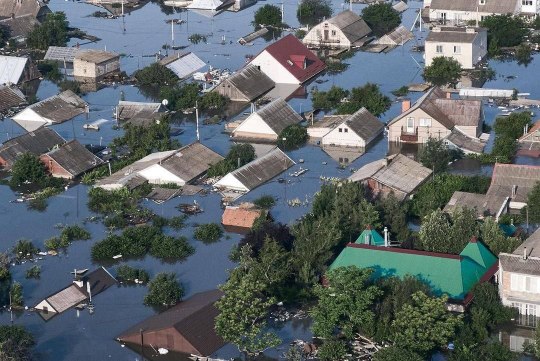
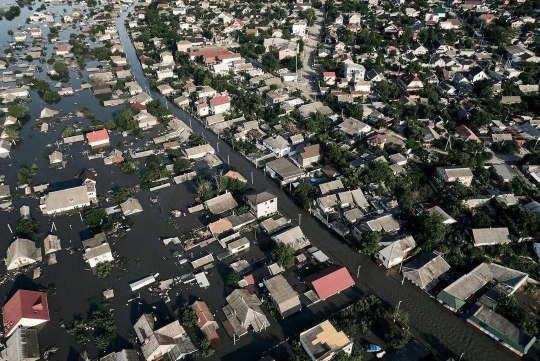
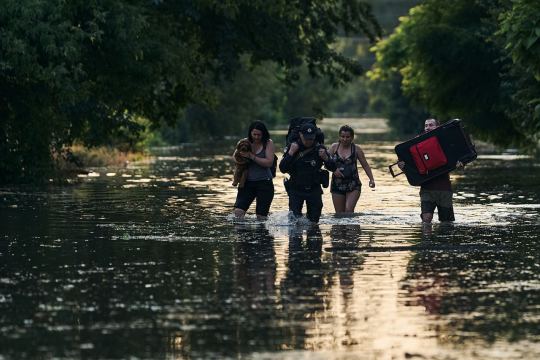
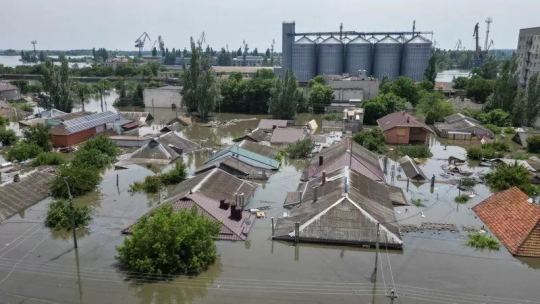
#ukrainian post#ukraine#ukrainian tumblr#post#russia ukraine war#ukranian#russia is a terrorist state#nova kakhovka dam#russian war crimes#kakhovka hpp#ecocide#ecology#world#flood#terrorism tw#red cross#the united nations#organisation#hypocrisy#war crimes#russia war#war#humanity#people#animals#stand with ukraine#fypツ#not all russians#kherson#nova kahovka
170 notes
·
View notes
Text
The Port & the City

Buenos Aires, photo by lasgalletas (Creative Commons CC BY-NC 2.0)
Introduction
City of witches and of asphalt,
port with no exit to the sea!
— La Portuaria, from the port of Buenos Aires
Some cities have a port, and some port cities have a port culture. That's how I call it, anyway. It's a very special thing. It's created by the furious economic activity that concentrates around the coming and going of ships, cargo, and people. A port needs to cater to all of that, the ships and the cargo, the shipowner and the dockworker, the captain and the deckhand, the tourist and the sailor and the fisherman. And that transforms the entire city.
Where a port city meets the sea, there's shipping companies, travel agencies, imports/exports, truck companies, posh hotels, shitty hotels, fancy bars, seedy bars, brothels, strip clubs, theatres, restaurants, casinos, bookshops, tool shops, souvenir shops, fishing supplies, and fresh fish. There's peddlers and businessmen, porters and accountants, all sorts of people, and they all mingle. They have to! The port's there!
Port cities have their own landmarks and geography, with docks, wharfs, piers, depots, gates, shipyards, and people can orient themselves by relation to the water.
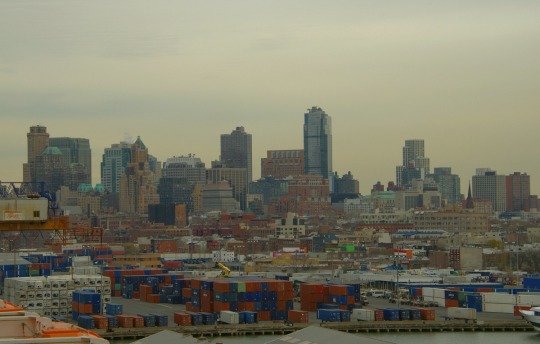
New York City, photo by Kari Nousiainen (Creative Commons CC BY-NC 2.0)
Crime
My gold watch and my pocketbook and lady friend were gone
And there was I, Jack all alone, stark naked in the room
— the port of New York City
Port cities attract furious criminal activity. Firstly and obviously, everything that's smuggled will be smuggled through here, from cocaine to counterfeit handbags to guns to oil. (I mean crude/refined oil, though with the prices we've seen lately, olive oil is equally plausible.) Port authorities, customs, shipowners and workers, all can have a hand in the pie, a little finger or both hands shoulder-deep, depending on how high up the ladder they are.
Second, ports are always full of newcomers, sailors and passengers, and all newcomers are potential marks. Con artists, scammers, and grifters of all sorts can ply their trade here. There's also a lot of shilling for more or less legitimate businesses (come buy this, sir! rent a room here, ma'am! oh but you must have a drink there, buddy!), and peddling less then legitimate goods (may I interest you in a fine watch? Rayban glasses, I have Rayban glasses! 100% genuine!). And then there's good old pickpocketing. Although in most cases, pickpockets are not allowed to operate within the port itself: it's bad for everyone else's business, and unlike cops, "everyone else" can actually enforce that.
And third, there's the entertainment sector: the trifecta of night life, sex work, and gambling, all going hand in hand with the sale and consumption of drugs and booze. Expect the port city to be much more entangled in all that than other cities, and the port itself to attract the bulk of it, or the worst of it. Things that are theoretically illegal might be tolerated here, things that are heavily regulated elsehwhere might follow their own rules here, and things that are otherwise unheard of can be found here. What are you into? Step right up but beware: the large print giveth and the small print taketh away.
The upshot of all this is that people in the port's vicinity (not the whole city, though) are more likely to be involved, or at least personally know someone who's involved, in profoundly shady and/or illegal business. And that certainly affects the culture. Breaking the law is more "eh" than "oh my!".
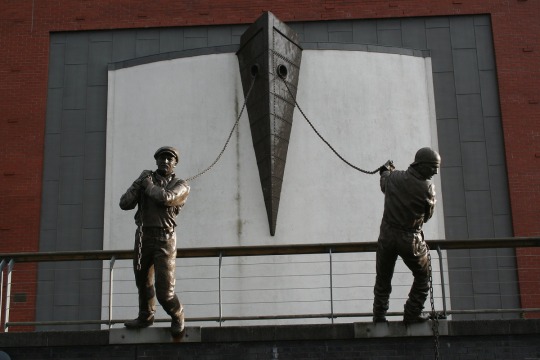
Clydebuilt Museum, photo by Paisley Scotland (Creative Commons CC BY 2.0)
Politics
All my life I've lived beside the waters that they call the Clyde
I build the ships and watch them glide down the Broomielaw, sir
Trudge to work in sleet and rain, labour for another's gain
know yer place and don't complain, that's the rich man's law, sir
— Alistair Hulett, from the shipyards of Glasgow
A port displays furious political activity. Unions are strong here, because labour is not only working, it's working hard, manually, in the same spaces (so they can talk about it!), and facing the same dangers to life and limb. Working on the docks, handling cargo containers, and ship-building and maintenance are very hazardous jobs (scrapping even more so, I'd say dramatically so), and under these conditions, it's easier to spot the enemy. Not automatic though. Port cities are traditionally, but not unconditionally, strongholds of the left.
Today, it's extremely important for the left to take the ports, because if it doesn't the fascists will. The workforce here has significant ethnic diversity, coming both from inland (immigrants and local minorities) and from the sea (sailors who go around the world sometimes end up working in random ports). So basically, this either goes "proletarians of the world unite" or "foreigners are stealing our jobs", no middle ground.
By the way, if all your knowledge about port unions comes from The Wire, or worse (for our older readers) from On the Waterfront, please be aware that these are slanted depictions, and you don't actually know anything. [They're not equally slanted, The Wire is nowhere near the other one's level of shameless propaganda, nor so completely divorced from reality. I mean yes, unions can be involved in shady business; so can literally everyone else in the port. But On the Waterfront, without the slightest exaggeration, is to American organised labour what Birth of a Nation is to Black Americans.]

Valparaíso, photo by [o] Rolando Vejar (Creative Commons CC BY-SA 2.0)
Culture
Amo el amor de los marineros que besan y se van.
Dejan una promesa. No vuelven nunca más.
— Pablo Neruda, from the port of Valparaíso
The port's culture seeps through the rest of the city. This is where sailor lore gets created and spread, and a port by definition loves travel and the ocean. Many non-sailors fall for it hook, line and sinker, and write poems and sing songs and their heart swells at the mere thought of sailing. But their fascination is often rose-tinted, whereas people who make a living from the sea typically have a love/hate relationship with it.
Maiden voyages are important occasions in shipbulding ports. A ship's last voyage, before it goes to scrap, is also memorable. If the ship regularly docks there, it will be the talk of the town, and if it's a passenger ship [this assumes a geography with regular passenger runs], a whole mess of people will be sharing stories and memories, waving it farewell, shouting, applauding, crying a little. It can get very emotional.
There's also a silly sort of localism/professional pride going on, where even the port's accountants, who've never set foot below decks IF they've actually boarded a ship, feel like they're a different species of accountant, inexplicably tougher and saltier than their more, er, inland colleagues. No matter who you are and what you do, it's badge of honour to say you're from and/or work at the port, like you're automatically endowed with tenacity and street smarts. It doesn't make sense, but there you have it.
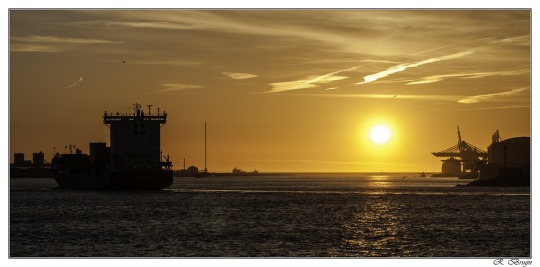
Rotterdam, photo by MaxAmy Photography (Creative Commons CC BY-ND 2.0)
Desire
In the port of Amsterdam there's a sailor who dies
Full of beer, full of cries, in a drunken town fight
In the port of Amsterdam there's a sailor who's born
On a hot muggy morn by the dawn's early light
— Jacques Brel (in David Bowie's adaptation), from the port of Amsterdam
A port is filthy, grubby, and hopelessly romantic. If it faces somewhat west, it's on fire every sunset. Silhouettes of gigantic cranes are framed by red clouds like alien tripods. The sun sinks into the ocean, and tell me, in the whole wide earth, is there a sweeter sight? Ships approach like sea beasts, and dock in their usual place like old friends.
A port carries the whiff of grease and petrol, the cool sea breeze, and the incessant sounds of waves and engines and – most of all – people. A port IS people, passing. And tell me, in the whole wide world, is there anything more exciting and heartwrenching than people passing? A port city can fill you with wanderlust and feel like a prison, or a warm welcome, or a devastating farewell.
And if you point a gun to my head and force me to describe a port in a single word, I'll have to say: desire.
Love me, leave me, hold me tight, walk away, forget.
Look at how I broke inside, and how the sea has swelled!
It's pouring out a riot of colours, scents, and lights,
and in the city's gutter it's building paradise.
— Ξύλινα Σπαθιά, from the port of Thessaloniki

Thessaloniki, photo by Arend Kuester (Creative Commons CC BY-NC 2.0)
La Portuaria - Un dia cualquiera (El bar de la calle Rodney) | the port of Buenos Aires
Ξύλινα Σπαθιά - Ρόδες | the port of Thessaloniki
Tom Waits - Step right up
Finbar Furey - New York City girls | the port of New York
The Dubliners - Go to sea no more | the port of Liverpool
Alistair Hulett - The Old Divide and Rule | the shipyards of Glasgow
The Dreadnoughts - Roll Northumbria | the shipyards of Tyne
The Longest Johns - Fire & flame | the port of Halifax
Maria del Mar Bonet - Merhaba | the ports of the Mediterranean
Cesária Évora - Mar de canal | the port of Mindelo
Susana Baca - Los marineros | the port of Valparaíso
Παντελής Θαλασσινός - Άσπρο καΐκι στη Νέα Πέραμο | the little port of Nea Peramos
Jacques Brel - Amsterdam | the port of Amsterdam
Social Waste - Kasbah | the port of Algiers
Πάνος Κατσιμίχας - Ο πιλότος Νάγκελ | the port of Colombo, so far from Lofoten
Ξύλινα Σπαθιά - Φωτιά στο λιμάνι | the port of Thessaloniki
#the city speaks#theory#trs#the ramblin' rover#pirate#booze#booze et al#no tears for the creatures of the night#smuggler#pickpocket#mixtape#prison ballads#ONE of these days I'll learn to be concise I swear#also I ain't translating Naruda to english#the Rogue's school of translation gives exactly zero fucks#but there's a limit#look it up it's called ''Farewell''#also I didn't include a planned section on immigration#because I got too fucking upset to write words
45 notes
·
View notes
Text
(part 4)
Jimmy wasn't quite sure what to think, as he comforted the strange copy of Joel that was now crying into his shoulder. His skin felt like hardened clay, and he was in a hole dug by Pix when he first saw him. Jimmy didn't know anything about living statues, but he knew two things about this man: He liked Jimmy, and the god of Stratos hated him. That was enough for the sheriff.
Joel sniffled, then let go of Jimmy and looked at him through tears mixed with sand. Or... were his tears made out of sand? It was hard to tell.
“You're not the Jimmy I knew, are you?” his voice was quiet, morose.
“I don't know. I might not be.”
“Right.” Joel looked at the ground. “That's embarrassing then.”
“Nah, don't worry about it. If you were friends with one version of me, you can be friends with this version too,” Jimmy responded. Does that mean I should be friends with the other Joel as well? He quickly dismissed that thought. He'd be friends with Joel once Joel respected him; which this version seemed to do.
Joel was looking around now, peering at the buildings in the village a little downhill. “So... what is this place exactly?”
“This?” Jimmy grinned at him, and spread his arms wide. “This is Tumble Town! I'm the sheriff of this place. Built it from the ground up, and now I provide everyone with terracotta and gunpowder. And, of course, with the Law.”
Joel's expression darkened. “Lore? I don't like lore,” he said.
“Excuse me? No, not lore. The Law. L-A-W.”
“Oh, the Law. Of course.” Joel chuckled, shook his head, then began walking downhill towards the settlement. “Of all the people to inherit this land...”
Inherit? What was that supposed to mean? Jimmy jogged up to him. When he'd caught up to him, he said: “Sorry, what'd you say?”
“Oh, nothing. I was talking to myself. Don't worry about it.”
“I think I will worry about it, actually,” Jimmy said, getting in front of Joel. “Did you say 'inherit'?”
Joel sighed, and looked into the distance again. “I used to be the king of this place, you know?”
Jimmy stopped in his tracks. He was not expecting that. “Really?”
“Yeah, really. The kingdom was called Mezalea. We exported terracotta too. Not as much as we used it ourselves though. I made a massive palace. It was- it was beautiful.” Joel's voice cracked as he spoke. “At least until everything broke.”
Jimmy was quiet. He'd never heard of a kingdom called Mezalea; he thought Pix would give anything to have learned this information. At the same time, he felt bad for prying. “I'm sorry.”
“Don't be. It was my fault, to be honest. I could have repaired the buildings at the time, but... I never did. And I guess it's too late now.” he looked at the horizon. “Speaking of late. Do you have a bed?”
Jimmy turned around, and saw the setting sun. “Oh my gosh, it's getting nighttime already. Er- hang on, I'll show you to the inn. Follow me.”
They walked to the inn in silence. Jimmy showed Joel to his room in the wooden building. “It's not exactly fit for a king, but... it'll have to do, I'm afraid.”
“It'll have to do,” Joel replied. He turned to him. “Jimmy?”
“Yeah?”
“Forget what I said earlier. I'm glad you're the one living here now.”
Jimmy smiled. “Thanks, Joel. Have a good night.” And with that, he closed the door, leaving the Mezalean by himself.
* * * * *
Joel didn't sleep. Tired though he was, the last time he went to sleep he didn't get up again for years, and he wasn't looking to repeat that experience. What business do I even have being tired anyways? I've done nothing, he thought. Instead, he got up, left the inn, and began walking around Tumble Town.
It was a bizarre sight, seeing these wooden buildings, so Jimmy-like, in the dry mesa. He looked at water tower illuminated with torchlight in the distance, and could easily picture it standing in the swamps of the Codlands. But the landscape was also familiar for a different, more haunting reason. This was his mesa. He almost saw the silhouette of his palace in the mountain peaks. When he reached the lowest part of the valley, he touched the ground, and thought he could feel the remnants of the Mother Tree below him. It was so faint he could just as easily be imagining it.
He sat there until the sun rose and Jimmy walked up to him.
“You weren't at the inn. Have you just been here all night?” There was a slight accent to his voice that Joel couldn't place. He supposed it must been the accent of the people that lived here now.
“I'm made of terracotta, Jim. I don't need sleep.”
“Right. Sure.” Even though he wasn't facing Jimmy, Joel thought he could see the skeptical expression on his face. “You did ask me for a bed though.”
“Oh, right. I guess I did, huh?” Joel replied. Jimmy didn't respond. The awkwardness was palpable.
“Jimmy,” Joel started, and turned toward his old friend: “Can you tell me a little bit about, like... the world these days? 'cause you're here in Tumble Town, and I've seen Pix as well, so... is there anyone else important I should maybe know about?”
“Alright.” Jimmy sat down next to him. “So, we're in Tumble Town right now. Way off to the east is the Eversea, where Pirate Joe lives. Me and him have a deal for gunpowder. There's also the Evermoore, a witch called Shubble lives there. Let's see...”
Joel nodded along. Joe and Shubble. Could those be distortions of Joey and Shrub? Neither of them were immortal as far as he knew, but then again, neither was Jimmy.
“So, you've met Pix. I think he's like... head of the archaeologists' guild? Something like that. He's discovered this giant ruined city up north, he tends to hang around there. East of that is-” he faltered. “Nobody important. Near there is also Animalia, with mayor Lizzie, and actually below there is-”
Joel's heart skipped a beat. “Lizzie?”
“Yep. As I was saying, below Animalia in the caves-”
“Wait. Hang on a second.” he suddenly felt a chill, and his head spun. Lizzie was here. He could see Lizzie again. “where is Lizzie's kingdom exactly, relative to here?”
“Uh, northwards I think. Why?”
“...do you have a spare elytra i could borrow?”
(ch 1 | ch 3 | ch 5)
#arthropod writes#empires fic#empires s1 joel#empires s2 jimmy#smallishbeans#solidaritygaming#empires smp#mirror mesa#<-thats what i'm calling it i think.
125 notes
·
View notes
Text
There is no justifying the continued slaughter of Palestinians in Gaza.
None of this is "self-defense".
The modern state of Israel was formed by forcing Palestinians out of their homes through force and death; the stolen land has been occupied ever since. Are Jews native to the area? Yes. That doesn't make the Nakba ethical. No indigenous population has a right to steal land from another indigenous population, that's not how this works. Immigration to the region? Fine. Using the military force of Europe to evict and kill thousands of Palestinians and steal their homes and land? That's wrong. And that wrong has NEVER been corrected; it has in fact been made worse as the government of Israel continues to steal more land.
It's not self-defense to retroactively re-label civilians as "combatants" after fights break out to claim the ratio of civilian deaths to combatant deaths actually isn't that bad. Combatants by international law have to distinguish themselves from civilians; you can't say "well they attacked us so now they're combatants". It's human nature to fight back when you're being carted around like cattle, when you've got a gun in your face, when you're starving and food is just a few feet away.
It's not self-defense to control all traffic in and out of Gaza, to control people's ability to even leave for medical treatment, to control what they can import and export, to restrict their access to safe water, and more.
It's not self-defense to "warn" you're going to bomb a neighborhood that last week you claimed would be safe, to constantly move the goal posts, to corral people into a smaller and smaller area through terror. It's not self-defense to bomb the city you promised would be spared.
It's not self-defense to claim it's ok to bomb ambulances and hospitals because Hamas "uses human shields" - you're not supposed to kill the human shields! They're still innocent people!
There are Jewish people living on stolen land, land they may not have personally stolen, land they consider home, in a region that historically was home. I don't know how to fix this in a way that doesn't cause a mirror of trauma to Jewish people now living there. Evicting everyone a second time is obviously not the right action.
But shooting at desperate, starving civilians is ALSO not the right action. The government of Israel is wrong.
(Setting this so no one can reblog it because I don't want antisemites on this post, this is not for you)
11 notes
·
View notes
Text
Ok guys, things are going BAD AND WORST EVERYDAY
Yesterday, on Saturday 26 of March, 2023, what we can call a civil war happened in Sainte-Soline, Deux-Sèvres, France.
A freaking good exemple of "what is legal is not necessarily legit".
Here, from the French human right ligue :
"We noted several cases of obstruction by the forces of law and order to the intervention of the emergency services, both ambulance and fire brigade."

Green activist were having a congress about ecology and how to build a virtuous agricultural model that respects people and biodiversity.
The project :
https://bassinesnonmerci.fr/index.php/les-bassines-cest-quoi/
Build 16 mega-basin, the biggest one having a 720 billions litres capacity (720 000 000 l.) on 16 hectares of land, with 8 meters high embankment.
The water to fill those basins will be pomp in groundwaters(into the grounds or rivers),it will NOT be rainwater.
This water will be use to irrigate CORN, which don't naturally grow in this part of the world.
This corn will be grown to be exported, or make biogaz, but not to feed animals and humans.
Only 12 farms will benefit of it.
FRENCH PEOPLE are paying for it : since access to water is ALL PUBLIC SERVICE here, and the state is spending 60 billions euros for that, but is NOT the owner of the farms, the state will NEVER have its money back and the French people will never eat that corn.
ON TOP OF THAT most of the country is facing an historical WINTER DROUGHT.
So green activist, farmers and elected greens gathered on the site to protest, despite the prefecture's ban, because our planet cannot wait any longer and water should be a shared good and not for just some farmers. Anyway, our beloved (no) Minister of Home Affairs have been speaking of "how violent it will be" there, despite the ban, speaking of "1000 violents protestors awaited".
What happened :
The prefecture banned every gathering for the weekend, fearing violence as it happened in Notre-Dame-Des-Landes
People came anyway, because ecology is our best chance to survive, moreover after the last GIEC report
3000 policemen (civil) and gendarmes (military) have been sent to guard the construction site.
As you might have understood, things went bad, like REALLY bad.
4.000 grenades thrown by the state's force
3 gendarmes' véhicules burnt.
200 protestors hurt, 28 gendarmes, 5 persons in a life-threatening condition (2 protestors, 3 gendarmes)
Ambulances kept away from the field from the military, despite the injured people needing immediate medical attention.
👇This thread will show you what happened
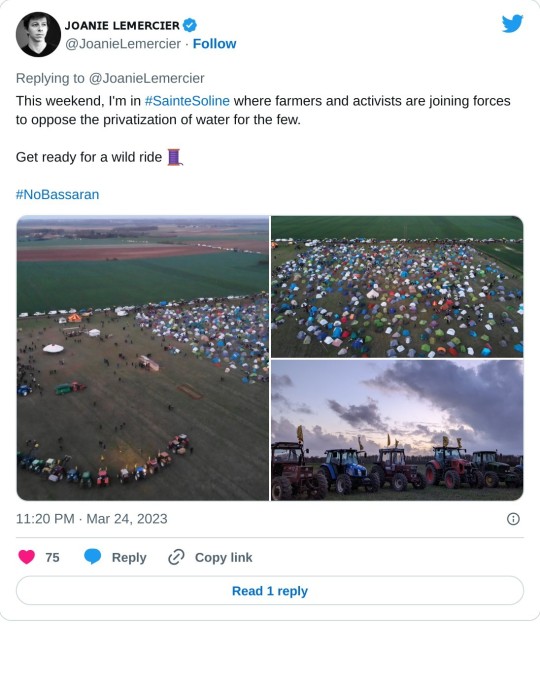
And now what ?
Well, protests happen EVERYDAY in France. Considering that :
how violent this protest have been,
how fast is our beloved (still no) Minister of Home Affairs to blame far-left and black blocks for every violence during protest
How he used tiredness to justify the violence of the police
How he considers undeclared protestation illegal WHICH IS ABSOLUTELY FALSE
Protests will take place all over the French territory next Tuesday
We already know that there wil be MORE policemen and gendarmes around the protests
Please PLEASE, fellow French protestors, TAKE CARE, even more if one of sainte-soline's protestor or gendarme dies by then.
#france#french protests#upthebaguette#sainte-soline#sainte soline#french police#human rights#civil war
40 notes
·
View notes
Text
A study in Obi-Wan's homeworld, Stewjon, Vol. ii:
vol. i: a brief overview of terrain, seasons, inhabitants, and culture
Stewjon is an ancient planet and much like Mand'alor, its inhabitants have seen many changes throughout the centuries.
Both Stewjon's original name and native sentient race have been lost to the annexes of time, but it is presumed the original people were amphibious cousins to the modern-day Kage people.



Stewjon wasn't always isolationist like it is today and it was once common for near-humans to come for the planet's rich soil and abundance of farm land. Though, despite the number of expats that would come, very few ever permanently settled due to the ways the planet's unusual climate forced them to live.
While the atmosphere is compatible with near-human life, the planet's surface can pose a hostile threat to those who don't know how to navigate it. At surface level, the air is dense with moisture and the ever-present fog covering the ground makes it extremely difficult for people without enhanced eyesight to see clearly. In addition, bodies of water are strewn about the surface and many are filled with deep cave networks that will pull people in if they are not careful.
The mixing of near-human and native sentients resulted in the modern day people of Stewjon, who share the distinct glowing properties and pointed ears of their predecessors, and the pigmentation of most human-like species. There is no up-to-date information on their biology nor culture, and the most recent data comes from the mid-point of the High Republic.

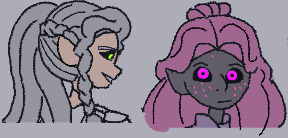
According to this data, Stewjoni people :
are capable of withstanding deep-water pressure and holding their breath for upwards of 30 minutes ;
have adapted to survive with little to no sunlight ;
have a similar ethereal vibe to that of their Kage cousins ;
are capable of seeing in complete darkness ;
if trained, are capable of hearing distinct noises from up to 800 meters away.
Stewjon became an extreme isolationist planet during the mid-point of the High Republic when its local government felt they were being treated unfairly. The planet's soil was being over-tilled and its freshwater supply was being contaminated due to the abundance of fertilizer required to yield enough crops for their clients. Stewjon had always been capable of taking care of itself, but it seemed trying to supply the rest of the galaxy was taking a toll on its people, land, and wildlife.
The planet's leaders also felt they were not receiving enough protection from the Republic as their agricultural communities and vast cave networks made Stewjon a prime target for pirates and fugitives running from the law. Fortunately, Stewjon was far from the Core Planets and the backlash the Republic would recieve from trying to force a peaceful community of farmers to adhere to their rules would not be worth the uproar it would cause. Especially with the Kage people, known for their elite warriors, taking Stewjon's side.
Stewjon has one heavily guarded space port where only neighboring planets are allowed to do trade. They do not import goods nor services, they only export crops and, on occasion, artisan items. They do not trade in furs or meats because they do not want the galaxy to know species they harbor on their planet.
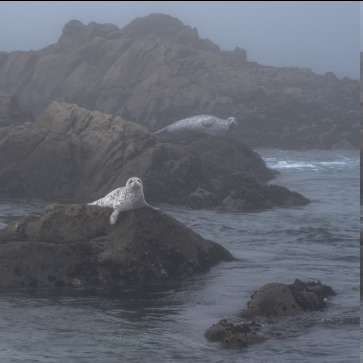
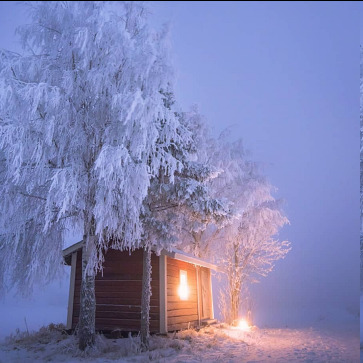
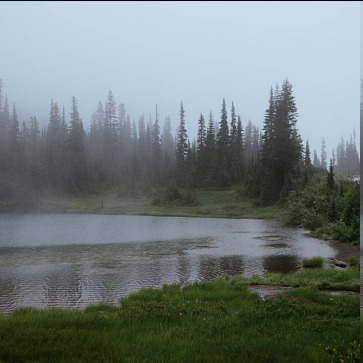
Stewjon's internal politics have remained steady throughout the centuries. The government is made of several ruling families who know better than to overstep and the common people remain content so long as the borders are kept closed and they are given enough community resources to help care for the sick and less fortunate. The land has never been scarred by war or devastating man-made weapons. The hostile climate is hard enough to survive on its own and it's always been safer for any opposing parties to diplomatically work through their problems than try to wage battle.
And as far as external politics go, it is unknown where Stewjon stands. Although, they have surrendered two of their own to the Jedi Order, so it seems they are at least willing to cooperate with some of the Core World's practices.


On record, Master Jedi Obi-Wan Kenobi and Master Jedi Fay are the only Stewjoni people to live within the Republic's borders. While it is legal for Stewjon's inhabitants to leave the planet, most choose not to because of presumptions about the rest of the universe. They think Stewjon is the epitome of safety and peace, and that the rest of the galaxy is all chaos and brimming with danger.
tldr; stewjon is mostly left alone because it's a pity planet with a big scary older brother
6 notes
·
View notes
Text

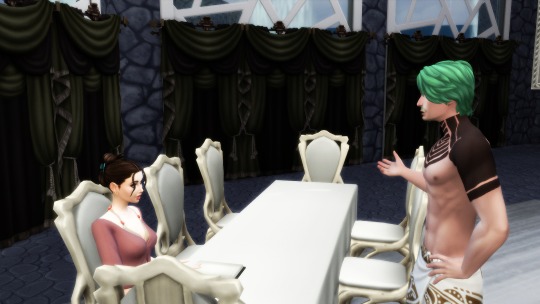


Stella sits in the palace library looking at her book reading the history of Sulani and the laws. And realising just how old her betrothed was. Ozen walks in and joins her.
Ozen: Finding everything ok Stella? Can I get you anything?
Stella: Oh hi Ozen. Um. No I am ok thankyou... actually I wouldn't mind some coffee
He motions a servant who scurries off to get the requested item. He turns back to Stella,
Ozen: You did great out there you know, during the crisis, the people will be proud to call you Queen.
Stella: oh, I didn't do anything. I just waved my arms about trying to not look scared half to death. What happened oz!? How did that thing crash into the water like that?!
****
Ozen: You did exactly what we needed and helped the people. From what the reports tell me, a secret military space station was pulled out of orbit. If the reporter I was listening to was correct, it was pulled down by a madman trying to kill everyone…
he looked at the books and then back to her,
Ozen: if you believe the normal television people, then it was a meteorite or something elaborately incorrect.
Stella: I don't. I've worked with enough liars and cheats to know crap when I hear it. Praise the gods we had your sister. This island would be a muddy puddle were it not for her. Kevari told me what she did. I... I can scarcely believe it.
Ozen *smiles*: Mori's definitely one of a kind. I only wish I'd been there to see it myself. What are you doing today now that we're in the days after the end of the world?
****
Stella: I'm looking at Sulanian exports and imports and wondering how we could levy duty against our customers to add a bit of extra coin for us. Without being too greedy of course. Before that, laws and history so I would have precedent for this bit.
Ozen laughed
Ozen: I have no idea what you just said, I've never been one for the minutiae of the country's income. I'm more of a... what did Mama Kevari call me?... Ah, yes…* in his best Mama Kevari voice, * "De people's Princeling!" Morrigan is more knowledgeable about those things, but it's our father who set all of that in motion years ago. It probably could stand to be updated to today's standards I suspect.
He seemed thoughtful.
Stella: Indeed you are Ozen, you are likable, approachable and you are able to relate to the so called "common man" admirable traits in my opinion a true peoples Princeling. Besides, modernising is my field, I have extensive knowledge of all of these wonderful Sulanian products!
Ozen *nods*: Mama Kevari is working on a new blend of cigar too, perhaps that’s the line you could use… Can I ask a stupid question?
#ts4#ts4 story#sims 4#sims 4 story#Tales From The District#Season Two#Stella#Ozen#crossover#Collab#Sparkiekong#TAC#KSU
11 notes
·
View notes
Text
The Ivory Isle
Hello lovelies! I wanted to tell you all about the fictional world that lives in my head rent free! It's called the Ivory Isle and it is entirely of my and my friends' creation. I apologise, but prepare to hear a lot about it.
Okay, here's the basics:
It's a fantasy world where magic is imbued in every living thing. Somethings have more magic coursing through them and others have less (ex. a dragon vs a human).
Humans act as a general antagonist of the story; they harm magic creatures constantly, and are kinda dicks in general. Now, this does not mean that all the humans are, however. Multiple of the main characters are humans working to take down the bourgeoisie, if you will.
The mainland is mostly inhabited by humans, and is divided into six kingdoms. These kingdoms are:
The Diamond City- Don't let the name fool you, this is the biggest of the six! It's where the government resides, and takes care of many of the affairs of the mainland. A lot of the Dicks TM are here in positions of power, and this includes the Carrow family (I'll do a whole other post talking about them)
Brightwater- This kingdom takes care of most of the agricultural needs of the mainland, but isn't considered to be one of the most important. However, I'm listing it second as this is where a lot of the story takes place.
Stormkeg- Probably held with the second-highest regard as Diamond City. Almost everyone who joins the 'police force' there train here, and it's a requirement for all who join the proper army.
Copperblade- Essentially a kingdom of blacksmiths. Of course, none of these are solely their main export/function, but it's what they specialize in! They put together most of the armour and weaponry for the army.
Nevermount- Mostly fisheries and such. I honestly don't have much to say about them otherwise...
Ryeville- Takes care of livestock needs and other things of the sort.
There are also islands around the mainland; most are in the water (as one would expect), but there are two(?) that aren't. Yes, we've got floating islands. But the islands in all are:
SIlvergaurd- It's a floating island chained to Stormkeg. They breed and train dragons there.
Hawkeborne- Another floating island, chained in the water next to Terreline. It's inhabited by the harpies (not typical harpies, I'll explain in a bit)
Terreline- This island is grounded, and home to the satyrs!
Swordsmount- The island that the dragons are native to. They had been taken to Silvergaurd by humans. Also floating.
Then we have the Outcast Islands! All of the islands do have a surplus of magic beings, but these are less monitered by humans. There are three of them, each meant for a bit of a different thing. (Sidenote, only one of them has a name, and in universe, it is kind of unofficial.) We have the hunting island, used by humans to hunt all sorts of animals (and magic beings). There's also one that's mostly just plants, otherwise not really inhabited by humanoids. And then there's Savehaven. As the name might suggest, it's a safe place for criminals of the law (only the wrongfully accused) (or those who won't hurt anyone else on the island), and many magic beings escaping the unjust system humans put together find asylum there.
This was just a part one of posts talking about this, the next will be species, after that should be the characters, and then I will deliver the promised post about the Carrow family. Please, send asks about this! I want to talk about this so much!!
Part two (species)
Part three (Carrows' + the Guild)
Part four (characters)
#the ivory isle#my writing#my ocs#my world#@thegoldenduckie#@samwitch420#they helped so much in the making of this!#gosh#i have so much lore#and p l o t#and its a gay love story!#anyway#i think yall would like it
5 notes
·
View notes
Note
Happy WBW! Are there any givens from our world that don't apply in yours? (The laws of gravity, the water cycle, seasons, the hours in a day, day and night cycles, things like that!)
Thanks Nopal for the ask!
Technically speaking, White Sky takes place in our world, just seventy years or so into the future and in a slightly different version of modern history, so all laws of physics/universal constants are the same. Time measurement differs from situation to situation, though.
Pretty much all of human space refers to or uses Earth time in transit or in space, usually UTC/GMT if it's a multinational vessel, although some private craft use their timezone of crew origin (a craft crewed by Australians might use Australian timezones, an Indian ship would use IST, and so on.)
On the Moon, things are a bit different. While many use Earth time, most of the Moon's permanent inhabitants, businesses, imports and exports all use a 'lunar calendar' which alternates between a 29 and 30 day month, split into lunar day and lunar night, with specific references for launch windows from Earth. Most official lunar communication takes place in either Ecuadorian or Chinese Standard Time, as those are the main equatorial launch sites, but different areas, cities and points on the Moon may differ, as with ships.
Mars is basically a sparse collection of research outposts and residential stations: think a slightly more scattered version of Antarctica and its bases. The Martian colonists mostly use a Martian day (24 hours and 37 minutes, known as a sol) and a Martian year calendar (687 days, split into 15 cycles of 39 to 42 sols), although the repeated use of Earth time in official capacity has been a source of growing frustration and dissent.
Gravity differs from ship to ship and planet to planet as well. Earth has a nice, cushy 9.81m/s squared of gravitational acceleration, or 1g. The Moon/Luna has a gravity of 0.166g, and Mars has a gravity of 0.387g. Most ships operate in zero-gravity: however, ELTO laws state that any spacecraft with intended occupation times of greater than one Earth year must have some form of artificial gravity for exercise. This is usually generated through centrifuges which use rotation and centrifugal forces to simulate gravity for those inside. Smaller ships have fold-out centrifuges, while larger vessels will have integrated 'spinners' or internally rotating exercise rooms. Commercial travelers to the Moon or into space for long periods are required to submit themselves to regular physical evaluation to minimise the strain upon returning to Earth.
3 notes
·
View notes
Text
i landed on your pussy seamen
One must be employed aboard a vessel in navigable waters - used for navagationable used for commerce or travel.
As a seaman, one is entitled to rights he would otherwise not be eligible for outside of admiralty jurisdiction such as maintenance and cure, unseaworthiness, and other remediies under the Jones act.
The Jones Act, also known as the Merchant Marine Act of 1920, is a federal statute establishing support for the development and maintenance of a merchant marine in order to support commercial activity and serve as a naval auxiliary in times of war or national emergency (see 46 USC § 50101).
The statute, among other things, requires shipping between U.S. ports to be conducted by US-flag ships. (46 USC § 50102.)
The statute (46 U.S.C. § 30104) also extends the Federal Employer’s Liability Act (FELA) to seamen. The Act enables seamen who have been injured at sea during the course of their employment to bring a personal injury action against their employers.
Under the Jones Act, the plaintiff may bring an action in federal district court or in state court. The defendant is not entitled to remove the case from a state court to federal court. Although maritime law generally does not afford the plaintiffs the right to a jury trial, the Jones Act grants plaintiffs that right in personal injury actions.
46 U.S.C. § 30104 reads: "A seaman injured in the course of employment or, if the seaman dies from the injury, the personal representative of the seaman may elect to bring a civil action at law, with the right of trial by jury, against the employer. Laws of the United States regulating recovery for personal injury to, or death of, a railway employee apply to an action under this section."
Because they are strict liability offenses? I don't agree because it's for upkeep to keep revue on monthly weekly per trip basis.
Maintenance and cure is an ancient remedy particular to admiralty law that was first noted in the jurisprudence of the US in 1823. Against the seaman's employer for injuries received while in the ship's service. even though the seaman is injured and my be unable to work, the ship's owner or employer must continue to pay the seaman's wages or maintenance, as well as medical expenses or cure until he is able to resume work.
Mitchell v Trawler Racer only to furnish a vessel and appurtenances reasonably fit for their intended use.
Unloaded vessels for vessel owner with their own land based employees.
The fortuitous circumstances of his employment by the shipowner or a stevedoring contractor should not determine the measure of his rights. this new class of land based employees with a claim to unseaworthiness is often referred to as Sieracki seamen.
1972 Longshore and Harbor Worker's Compensation act. 1972 The rationale which justifies holding the vessel absolutely liable to seamen if the vessel is unseaworthy does not apply with equal for to longshoremen and other no seamen working on board a vessel while it is in port.
46 U.S. Code § 50101 - Objectives and policy
(a)Objectives.—It is necessary for the national defense and the development of the domestic and foreign commerce of the United States that the United States have a merchant marine—
(1)
sufficient to carry the waterborne domestic commerce and a substantial part of the waterborne export and import foreign commerce of the United States and to provide shipping service essential for maintaining the flow of the waterborne domestic and foreign commerce at all times;
(2)
capable of serving as a naval and military auxiliary in time of war or national emergency;
(3)
owned and operated as vessels of the United States by citizens of the United States;
(4)
composed of the best-equipped, safest, and most suitable types of vessels constructed in the United States and manned with a trained and efficient citizen personnel; and
(5)
supplemented by efficient facilities for building and repairing vessels.
(b)Policy.—
It is the policy of the United States to encourage and aid the development and maintenance of a merchant marine satisfying the objectives described in subsection (a).
(Pub. L. 109–304, § 8(b), Oct. 6, 2006, 120 Stat. 1556; Pub. L. 111–84, div. C, title XXXV, § 3511, Oct. 28, 2009, 123 Stat. 2722.)
2 notes
·
View notes
Text
You can skip the whole rant and go down to the links to support indigenous people
Reminder to myself never talk to a white person ever again about blood quantum. 9/10 times they hold up white supremacy with their uneducated ass. And even when you try to educate them they just don't get it and deflect or use strawmen arguments. And then get all defensive,mad and surprised when you get mad because they try to defend their "argument" with words that have deep rooted pain and suffering and completely ignoring the history of it. Like you expect me to stay calm when you talk about that shit where literal Nazis have used this to erase others like it isn't a big deal?
"oh but 100% indigenous people don't exist anymore"
OF COURSE THEY DON'T, they got killed and the once who survived where stripped off of their culture and got raped in order to "get the savage out"(god i hate that word but i don't know how to word it better (also nothing 100% exist)). And in this situation this shit is extremely harmful. You hold up shit that erases us and then you tell me that i'm not indigenous because I'm not "100%" and saying that i identity as indigenous means i say i am "100%"?? Bruh.
Your swiss you identify as swiss but your dumb fuck has German,polish and french but yet you can say "I'm swiss" but me whos history got massacred,ripped away and being actively destroyed can't say "I'm indigenous".
Your an adult use your two brain cells that are on live support and pick up a book.
Your way of thinking kills us and is destroying our culture. You think i would be standing here if that shit didn't happen?? I most likely would have been chilling with my fellow Mapuche, learning about their culture being accepted as two spirit and maybe being trained to become a machi because of my connection to gender.
It's so painful to think about it what could have been how live would have been different as a whole. It feels like a part of me was taken away.
And then seeing my siblings all over the world hurting, be it because they live like me completely ripped away due to the horrible things that happened desperately learning, listening and trying to finde back to our ancestors picking up the tiny bit of culture that is left and doing our best to empower the once who live in their communitys.
And the once who are connected and actively live in their community live in horrible conditions with dirty water, their land and culture stolen, destroyed and bastardized, fighting to not lose the tiny bit of rights they have fought for for DECADES.
🧡🧡🧡🧡🧡🧡🧡🧡🧡🧡🧡🧡🧡🧡🧡🧡🧡
✊✊✊✊✊✊✊✊✊✊✊✊✊✊✊✊✊
🪶🪶🪶🪶🪶🪶🪶🪶🪶🪶🪶🪶🪶🪶🪶🪶🪶
To finish the whole rant i want to give you guys links on how to help (specifically) my siblings on turtle island and my people. ICWA is currently about to be taken away please sign up and use your voice to spread our voices in hopes that they keep the tiny bit of safety they still have left.
Also i linked a bunch of articles to read
____
Edit; also reminder my people are also fighting to get their land back and the old ass law that was writen by a fascist STILL DIDN'T CHANGE. This shit is like 30-50 years old and actively hurts. If you want to change it please impower my peoples voices listen to them and spread the message.
__
(articles about their fight)
https://www.google.com/amp/s/www.bbc.com/news/world-latin-america-55042838.amp
https://www.google.com/amp/s/amp.abc.net.au/article/100907988
https://www.iwgia.org/en/chile/3932-from-fighting-for-their-land-to-fighting-for-their-freedom-mapuche-political-prison-as-a-counterinsurgency-mechanism.html
___
Petition :
(against the selling and exporting of our cultural clothing(not in the, i made [insert thing] to sell, but in the sacred garment got stolen and sold ))
https://www.change.org/p/poder-judicial-y-sociedad-civil-no-m%C3%A1s-expropiaci%C3%B3n-de-nuestra-cultura-y-kimun-mapuche?source_location=topic_page
__
(for the visibility of my people)
https://www.change.org/p/sebastianpinera-conadi-gob-feriado-nacional-we-tripantu-chile?source_location=topic_page
__
(more support for my people because the government didn't help enough when covid hit/had let them rot and fight for themselves without any support)
https://www.change.org/p/sebastianpinera-hernanlarrainf-adrianamunoz-diegopaulsen-chile-no-puede-ser-indiferente-ante-la-grave-situaci%C3%B3n-de-presos-mapuche-en-huelga-de-ham?source_location=topic_page
__
Also side note my Spanish isn't that great and the translation is the bare minimum of what they wrote for the petition. If anyone who can speak Spanish better a proper translation is appreciated, thank you :))
____
https://action.lakotalaw.org/action/protect-icwa
✊✊✊✊✊✊✊✊✊✊✊✊✊✊✊✊✊✊
Here are some general links to support us;
https://www.service.nsw.gov.au/guide/support-aboriginal-and-torres-strait-islander-communities
https://www.beyondblue.org.au/who-does-it-affect/aboriginal-and-torres-strait-islander-people/helpful-contacts-and-websites
https://actionnetwork.org/petitions/sign-the-petition-demand-congress-support-indigenous-communities-by-passing-the-not-invisible-act?source=direct_link&
https://chng.it/ynNMKw69QL
(change dot org list for indigenous support)
https://www.change.org/t/indigenous-rights-3
🧡🧡🧡🧡🧡🧡🧡🧡🧡🧡🧡🧡🧡🧡🧡🧡🧡🧡
Things to read:
https://www.theindigenousfoundation.org/articles/bloodquantum
https://www.californialawreview.org/blood-quantum-and-the-white-gatekeeping-of-native-american-identity/
https://www.nativejustice.org/mmiwg2s#:~:text=The%20MMIWG2S%20abbreviation%20stands%20for,Girls%20and%20Two%2DSpirit%20People.
https://www.apa.org/pi/oema/resources/communique/2018/11/standing-sisters
https://www.gatheringthunderfoundation.org/mmiwg2s
🪶🪶🪶🪶🪶🪶🪶🪶🪶🪶🪶🪶🪶🪶🪶🪶🪶🪶
(this one has a free to call hotline for MMIWG2S and also things to read)
https://scoinc.mb.ca/mmiwg2s-and-violence-prevention/
#indiginous#blood quantum hurts#mapuche#white people dni#white people are wild#rant#i hate white people#their ignorance hurts and kills#two spirit#land back#indigineous people#indigenous power#mmiwg2s#mmiwawareness#support indigenous people#important
4 notes
·
View notes
Text
Couple more announcements
-a lot of people are very mean and they're not saying it but they're mean and they're kind of s*** we know about it and we're going to enforce the rules in the law today we're tired of you people you suck you're out there doing that and you're all arrogant as hell and just point stuff out and say you're taking it it's going on globally and we really need it everywhere and there's twice as much stuff elsewhere other than the United States but that's the whole world but a lot of this is going to get exported there's a lot of stuff coming out okay new bikes there's Harley Davidson not that many but there's tons of Japanese bikes and they're going to flood the market and people going to start buying them again there's a lot of cars probably 1/3 of a Year's production in total globally there's a lot of household goods appliances and things and it's probably a half year supply but it's really needed and it's going to absorbed in probably two days and everybody's going to say we need production and we're going to start factories up all over the world in the middle areas and outside the middle areas and production is already at 300% of right before covid and we need more probably a thousand percent, and these factories making these bikes are going to be huge and they're going to switch over to hard knock kicker and they're going to make the models he was saying a cruiser a Sportster and it's going to be a huge company with several people running each division which is a different vlan and they're going to start infighting like madness they're spoiled and rotten right now there's more happening though and they're beginning to take the ships out and in competition because of Tommy f comment and he said it and there's tons of people at it tons of warlock those ships are going to come out real fast and this place is going to settle the water is going to come out it's still kind of plugged up if the water stopped flowing abnormally from up North in one week it would be down about 129 in which is over 10 ft it's 10 ft 9 so at low tide the water potentially could be 10'9 down which is way down it's going to look odd but when you pull the diamonds and stuff out of the harbor it won't it'll be a vertical wall and it goes down that deep it's it's not sand so we're waiting for that to happen and all over the world it's kind of the way it is so we are in the mood for doing some work and we're going to do some work right now he's going to cruise around and get some things but really his life is very hard it's going to change soon because of all the stuff that's going on we expect the Midwest to be emptied out by late tomorrow or early Monday and if it slows down we're going to go take stuff and people come back and start taking things it's really lame these people are lame
Thor Freya
Olympus
Forget their messages I guess we can't stop cuz they make us hate them but we realize something they're just not going to let it happen so he stopped the factories are still there the stuff is been taken out we really need it to make bikes but new ones and other people are trying but it's going to slow down and we're speeding up and taking out the old ones now rapidly cuz we don't have enough power to do it
Trump
It has been up we're almost a 35% and yeah by the end of the day they're going to be out of there and out of all the other areas that's so many bikes I don't know what the hell they're doing with him now they're hiring huge crowds now because it's coming back and our son and daughter say it was necessary but we have to call it because they're just going to keep doing it and they said good and some people have stuff for new bikes and that'll come or you can try and make them make equipment a lot of people say they don't know how but they can get people who do and they're going to try and do that so we are going to be building a lot of these frames because these guys will not be able to keep up with their own production they're looking at the frames to see if there any good and most of them have holes and that's not good because inside is rusted and the metal does not rust that easy so at the bottom is where it breaks and they can see it breaking when they move them and because all the water sits in it and they break real bad and a lot of them fall apart and they take all the parts out and they leave the motors in the frames and it's disgusting it looks really weird like ripping bodies out that are close and it might be why they showed their body in the fire but this is going to save lives and they're calling for the lawn mowers all at the same time huge rows of trucks are going out of the Midwest and going in and it's not enough and our son told DJ to get the big trucks and they lay off the Harley and he did and it's wasn't working yet and he's telling them so they're moving stuff with big trucks and he says this is intense huge trucks are out there and they load up outside the wall massive trucks are taking tons of stuff anything you can put in a truck the other stuff they put in the regular trucks and it's going to go faster someone said we're up to like 37% on the used motorcycles on regular stuff is 20% but with the big trucks it's going to go extremely fast and more shortly
Thor Freya
Olympus
Zues Hera
0 notes
Text
Academic Reflection
I think that it's important I reflect on just how great the Osaka Aquarium truly was, and what I think it stands for both for the city and Japan as a whole. First, let me walk through my impressions of the aquarium. The aquarium does not look very large from the outside. The building itself is tall, but I've been to aquariums that cover more horizontal square footage than this one. Don't let that fool you, this is the most interesting aquatic activity you will ever see. Each section was divided up by region, starting with native Japanese ecosystems, then heading into the Pacific Ocean and many more world aquatic biomes. It was so captivating to see the difference of creatures across the world in such a cohesive and flowing format such as the layout of the aquarium. All sorts of sharks, cute and funny sea lions, seals, dolphins, penguins, and fish I have never even heard of before. As someone who grew up in coastal south Florida, with fishing being a huge sport and tourist attraction, marine culture is engraved in our way of life. Issues like conservation come up very frequently in our local political realms, and our schools have courses designed to teach about marine biology and coastal conservation as well. To see Japan's take on this was very cool, as the Japanese are known for having great systems for solving problems. Don't take it from me, go see it yourself and see the hundreds of people, schoolkids and civilians alike, who are in awe of each one of these aquarium's exhibits. The Osaka Aquarium serves as an icon of education and imagination, a colorful aquarium for one of Japan's most colorful cities.
Take a read through this article here from the Japanese Ministry of the Environment, an official Japanese government entity dedicated to all things ecological concerning Japan. This website link in particular goes over the many historical and current policies regarding both freshwater and saltwater conservation. Anti-pollution legislation, maritime laws, and initiatives for conservation and cooperation internationally. The parallels between our Florida legislation and the Japanese framework are there in terms of mindset. But what makes the Osaka Aquarium special is research. Scientists from all across Japan use this facility to study marine life and monitor Japan's waterways and oceans to ensure safety and life underwater. Many institutions across Florida operate with the same goals in mind and have done great strides in protecting our waters, marine life, and fishing culture. Pollution has been a very large issue in Florida but in a different way in Japan. Japan is mostly concerned about pollution from oil and ships. Considering the economic power of Japan that lies in their billions of dollars from net exports. Think about the soft power of Japan, and the way they get that strength overseas through their products. In Florida, we are mainly concerned about pesticides from farming. The advent of red tide, which kills thousands of fish and makes water unbearable to be around and even deadly for those with respiratory illness, all are byproducts of pesticide pollution and runoff. While both areas are surrounded by water, their topography and concerns are way different. I'm glad much of the modern world can agree on how important the oceans are to the economy and leisure and quality of life. Overall, I am very proud of how seriously Japan takes its land, air, and sea, and I hope this love for the natural world is reflected better in America.
0 notes